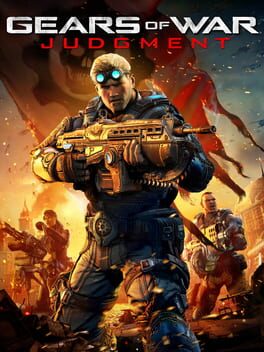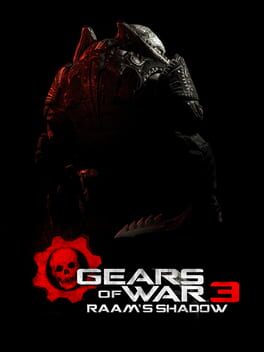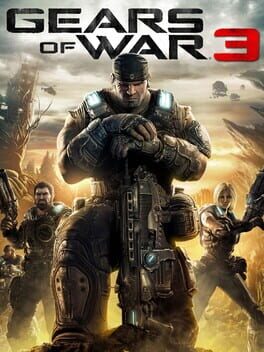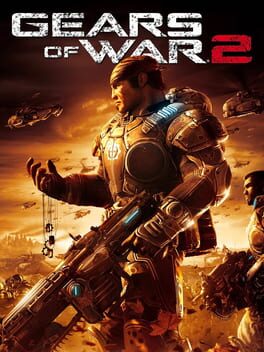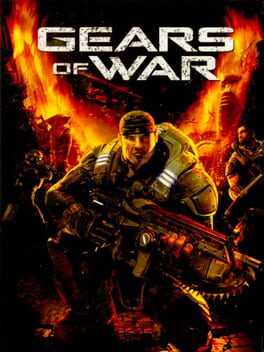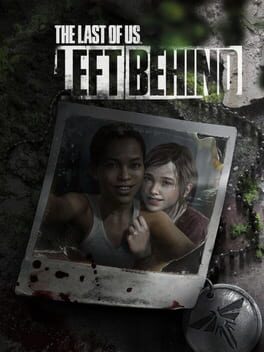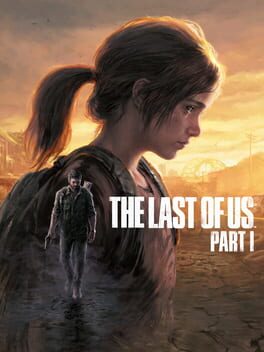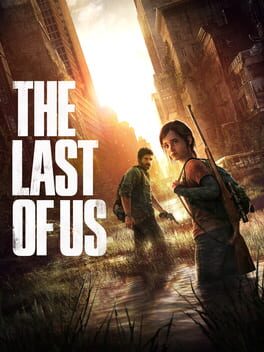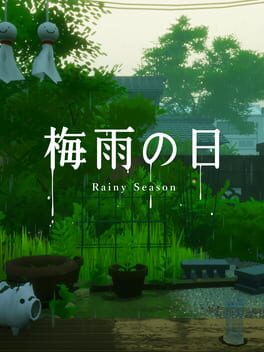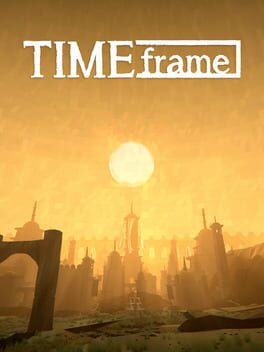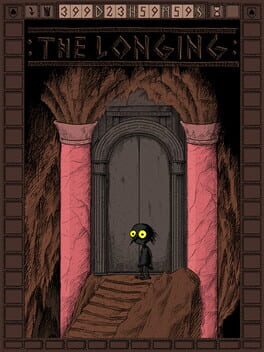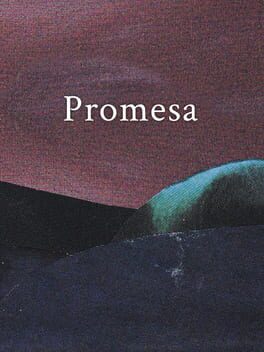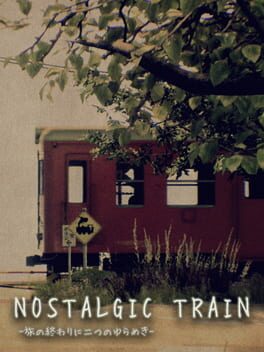El último juego en la línea clásica de Gears of War es una destilación de desafíos arcade, con algunas armas nuevas y una interfaz alterada que enfatiza la velocidad y cambiar de equipo constantemente. En ese sentido, es verdad que cuesta un poco acostumbrarse a él y a su extraño sentido del ritmo. Pero me resisto a llamarlo un mal juego, porque siento que los niveles y los retos planteados animan a que juegues de maneras que en otras circunstancias jamás te plantearías. Es como intentar agotar todas las posibilidades del estilo de juego innovado por Gears antes de jubilarlo del todo. Así que me lo pasé bastante bien jugando a estas misioncillas. El hecho de que el modo historia utilice un sistema de narración fragmentario no hace sino reafirmar lo que ya pensaba de los Gears como juegos resignados a una violencia infinita, aunque en este caso es una que ayuda a unir personas distintas contra una causa común. En ese sentido, se siente mucho más militarista y pro-guerra que la trilogía original.
-------------------------
The last game from the classic Gears of War line is a succession of arcade challenges, with some newly added weapons and an revamped interface that emphasizes speed and switching weapons. In that sense, it certainly takes a bit to get used to it and its strange sense of rhythm. But I'm reluctant to say it's bad, because it feels like the levels and challenges are there to encourage you to play in ways you hadn't considered. It feels like it's trying to exhaust all the options of the gameplay before retiring it, and with that mindset, I had a pretty good time with the missions. The campaign uses a fragmented narrative that only reaffirms what I already thought about the Gears games, which is that they are resigned to deliver violence and nothing else. In this case, the violence is there to unite different people against a common cause, and in that sense, it feels much more militaristic and warmongering than the original trilogy.
-------------------------
The last game from the classic Gears of War line is a succession of arcade challenges, with some newly added weapons and an revamped interface that emphasizes speed and switching weapons. In that sense, it certainly takes a bit to get used to it and its strange sense of rhythm. But I'm reluctant to say it's bad, because it feels like the levels and challenges are there to encourage you to play in ways you hadn't considered. It feels like it's trying to exhaust all the options of the gameplay before retiring it, and with that mindset, I had a pretty good time with the missions. The campaign uses a fragmented narrative that only reaffirms what I already thought about the Gears games, which is that they are resigned to deliver violence and nothing else. In this case, the violence is there to unite different people against a common cause, and in that sense, it feels much more militaristic and warmongering than the original trilogy.
Este DLC de más o menos hora y media pretende ser una vuelta a los tiempos de Gears of War 1, con la salvedad de que cuentas con personajes propios (que funcionan como fanservice) y un modo bastante poco trabajado en el que puedes controlar al malo de la primera entrada. Es una secuencia muy poco llamativa, con tal vez el añadido interesante de un nivel en una escuela que construye bastante bien la tensión.
-----------------------------------------------
This half and hour DLC is intended to take you back to the times of Gears of War 1, with a different roster of characters that are mostly fanservice and a mechanical addition that lets you play the bad guy, though not very inspired. It's pretty unremarkable, with the exception of school level that built tension quite well.
-----------------------------------------------
This half and hour DLC is intended to take you back to the times of Gears of War 1, with a different roster of characters that are mostly fanservice and a mechanical addition that lets you play the bad guy, though not very inspired. It's pretty unremarkable, with the exception of school level that built tension quite well.
2011
Acabo de dedicarle 3000 palabras esto en mi blog, y no me queda energía para explayarme como suelo hacer. Pero sí diré que, a nivel mecánico, este juego se siente como el más inseguro de los tres. Pequeños detalles, como que tengas que apretar el botón para recoger munición o ejecutar a enemigos convalecientes, dan a entender un estilo de pelea más metódico, y es cierto que casi todas las armas añadidas están pensadas para combate pesado y calculado. Pero creo que por el camino se ha perdido parte de esa rapidez y tensión que caracterizaba a los títulos anteriores. En cuanto a la historia, no tengo mucho más que decir, salvo añadir que, ahora más que nunca, tengo claro que estos juegos no son de tendencia fascista, como alguna gente parece ver, pero sí que se sienten resignados a un estilo de vida nihilista. Eso hace que, de todos los modos campañas, éste sea el que probablemente se sienta más miserable.
-------------------------------------------------
I just dedicated 3000 words to these games on my blog, and I don't have any stamina let to keep talking about them. But I will say that, mechanically, this game feels like the most insecure of the three. Small details, like having to keep pressing the button to pick up ammo or executing enemies, hint towards a more conservative fighting style. And it's true that almost all of the new weapons are geared towards slow and methodical combats. But I think that decision lost most the tension that came with the sense of speed that previous titles had. As for the story, I don't have much more to add, except to say that it's clear to me that these games are not explicitly fascist as some people have said. What they feel is resigned to nihilist worldview that could certainly be interpreted as fascistic. That made playing campaign mode, to me at least, a very miserable experience.
-------------------------------------------------
I just dedicated 3000 words to these games on my blog, and I don't have any stamina let to keep talking about them. But I will say that, mechanically, this game feels like the most insecure of the three. Small details, like having to keep pressing the button to pick up ammo or executing enemies, hint towards a more conservative fighting style. And it's true that almost all of the new weapons are geared towards slow and methodical combats. But I think that decision lost most the tension that came with the sense of speed that previous titles had. As for the story, I don't have much more to add, except to say that it's clear to me that these games are not explicitly fascist as some people have said. What they feel is resigned to nihilist worldview that could certainly be interpreted as fascistic. That made playing campaign mode, to me at least, a very miserable experience.
2008
Para mí, este juego siempre será el Gears of War definitivo. Cuando salió, la asociación en la que estaba metido se pasó horas y horas jugando al modo Horda, subiendo de nivel en el multijugador y pasándoselo bien en general. Yo nunca fui muy bueno y apenas alcancé el nivel 5, pero no me animé a acabar la campaña hasta esta semana.
A su manera, Gears of War 2 es el más espectacular de los Gears, en tanto que cada Acto (de por sí, compuesto por varios capítulos) te presenta con una progresión bastante obvia de momento calmado-momento de acción-escena arcade y, a lo mejor, un jefe final. Está muy claro y, al mismo tiempo, siempre tienes la sensación de que descubres nuevas manera de jugar cada vez que pasas. La dificultad esta vez está ajustada como es debido, y tus compañeros son pesos pesados que te ayudan en todo momento, al contrario que en la primera entrega. También tienes una variedad de armas respetable, y aunque la historia sigue siendo igual de exagerada y estúpida, ahora parece abrazar el absurdo de la premisa. El tono ha pasado de la solemnidad (no merecida) de Salvar al Soldado Ryan al ridículo de Crónicas de Riddick, con reinas y luchadores rastafari de añadido. Este juego también se merece más la observación que han hecho otres sobre Gears of War como una crítica al fascismo industrialista, con metáforas bastante trilladas pero también alguna que otra observación astuta. La mención a que la energía solar en Sera ha sido interrumpida por la Imulsión me dio a entender que alguien estaba tomando notas a la hora de construir este mundo. Pero más allá de eso, el juego también ofrece su buena dosis de humor negro para aliviar el ambiente de cuando en cuando.
Aún tengo que jugar al resto de Gears, pero por circunstancias personales, este siempre será mi más querido.
------------------------------------------------
For me, this game will always be the definitve Gears of War. When it came out, the group I was with used to spend hours and hours playing Horde mode, leveling up in multiplayer, and generally enjoying themselves. I was never very good at it and barely reached level 5, but I didn't get to finish the campaign until this week either.
In its own way, Gears of War 2 is the most spectacular of the Gears, as each Act (which are made up of several chapters) presents you with a fairly obvious progression from calmness to action, to an arcade section and, maybe, a boss scene. It's very straightforward, but it also leaves you room to develop different strategies every time you fight. The difficulty levels are adjusted properly now, and your companions are hard-asses that help you every time, unlike the first installment. You also have a respectable array of weapons, and while the story is as over-the-top and stupid as ever, it now seems to embrace its absurdity. The tone has shifted from a (undeserving) solemnity reminiscing of Saving Private Ryan to something ridiculous like Chronicles of Riddick, with Rastafarian fighers and alien queens added to the mix. This game is also more deserving of the praise it has received over its way to criticize industrialist fascism, with many heavhy-handed metaphors but astute observations as well. The talk about solar power in Sera being held off by the Imulsion industry gave me the impression that someone bothered to take notes during this. Beyond that, the game also has its fair share of black humor that lightens the mood from time to time.
I have yet to play the rest of the Gears franchise, but for personal reasons, this will always be my dearest.
A su manera, Gears of War 2 es el más espectacular de los Gears, en tanto que cada Acto (de por sí, compuesto por varios capítulos) te presenta con una progresión bastante obvia de momento calmado-momento de acción-escena arcade y, a lo mejor, un jefe final. Está muy claro y, al mismo tiempo, siempre tienes la sensación de que descubres nuevas manera de jugar cada vez que pasas. La dificultad esta vez está ajustada como es debido, y tus compañeros son pesos pesados que te ayudan en todo momento, al contrario que en la primera entrega. También tienes una variedad de armas respetable, y aunque la historia sigue siendo igual de exagerada y estúpida, ahora parece abrazar el absurdo de la premisa. El tono ha pasado de la solemnidad (no merecida) de Salvar al Soldado Ryan al ridículo de Crónicas de Riddick, con reinas y luchadores rastafari de añadido. Este juego también se merece más la observación que han hecho otres sobre Gears of War como una crítica al fascismo industrialista, con metáforas bastante trilladas pero también alguna que otra observación astuta. La mención a que la energía solar en Sera ha sido interrumpida por la Imulsión me dio a entender que alguien estaba tomando notas a la hora de construir este mundo. Pero más allá de eso, el juego también ofrece su buena dosis de humor negro para aliviar el ambiente de cuando en cuando.
Aún tengo que jugar al resto de Gears, pero por circunstancias personales, este siempre será mi más querido.
------------------------------------------------
For me, this game will always be the definitve Gears of War. When it came out, the group I was with used to spend hours and hours playing Horde mode, leveling up in multiplayer, and generally enjoying themselves. I was never very good at it and barely reached level 5, but I didn't get to finish the campaign until this week either.
In its own way, Gears of War 2 is the most spectacular of the Gears, as each Act (which are made up of several chapters) presents you with a fairly obvious progression from calmness to action, to an arcade section and, maybe, a boss scene. It's very straightforward, but it also leaves you room to develop different strategies every time you fight. The difficulty levels are adjusted properly now, and your companions are hard-asses that help you every time, unlike the first installment. You also have a respectable array of weapons, and while the story is as over-the-top and stupid as ever, it now seems to embrace its absurdity. The tone has shifted from a (undeserving) solemnity reminiscing of Saving Private Ryan to something ridiculous like Chronicles of Riddick, with Rastafarian fighers and alien queens added to the mix. This game is also more deserving of the praise it has received over its way to criticize industrialist fascism, with many heavhy-handed metaphors but astute observations as well. The talk about solar power in Sera being held off by the Imulsion industry gave me the impression that someone bothered to take notes during this. Beyond that, the game also has its fair share of black humor that lightens the mood from time to time.
I have yet to play the rest of the Gears franchise, but for personal reasons, this will always be my dearest.
2006
Hacía mucho que no revisitaba Gears of War, y era tan complicado y frustrante como lo recordaba. Todo lo que rodea a esta obra refleja precisión métrica y a ejercicio experimental: les desarrolladores están aprendiendo a hacer un juego de tiros basado en coberturas y nosotres estamos aprendiendo con elles. Eso hace que el juego se haga difícil de juzgar. Personalmente, creo que la base es muy sólida, pero el equilibrio no se ha alcanzado. El modo informal es insultante de lo fácil que es, y el Elevado parece el modo Locura. Me agobia la idea de volver a jugarlo para la versión remasterizada. Por otra parte, el modo historia es anodino y aceptable, con mucho postureo masculino y semper fidelis. Soy yo, o la manera de luchar de los Locust (apareciendo de improviso desde cualquier parte y siendo impredecibles y monstruosos) evoca a la imagen que tenía Estados Unidos de los terroristas?
------------------------------
It's been a long time since I'd played Gears of War, and it felt as complicated and frustrating as I remembered. Everything that surrounds this work feels precise and experimental: the developers are learning to make a cover-based shooting game and we are learning with them. That makes the game difficult to judge. Personally, I think the foundations are solid, but the balance hasn't been achieved yet. Casual mode is insultingly easy, and Hardcore plays like Insane mode. I shudder at thinking to play it again for the remastered edition. On the other hand, the story mode is bland and serviceable, with a lot of masculine posturing and semper fidelis. Is it me, or does the Locust's way of fighting (appearing out of nowhere and being unpredictable and monstrous) evokes the image that the United States had of terrorists at the time?
------------------------------
It's been a long time since I'd played Gears of War, and it felt as complicated and frustrating as I remembered. Everything that surrounds this work feels precise and experimental: the developers are learning to make a cover-based shooting game and we are learning with them. That makes the game difficult to judge. Personally, I think the foundations are solid, but the balance hasn't been achieved yet. Casual mode is insultingly easy, and Hardcore plays like Insane mode. I shudder at thinking to play it again for the remastered edition. On the other hand, the story mode is bland and serviceable, with a lot of masculine posturing and semper fidelis. Is it me, or does the Locust's way of fighting (appearing out of nowhere and being unpredictable and monstrous) evokes the image that the United States had of terrorists at the time?
A su manera, desprecio este DLC pequeñito más que el juego base, porque al menos ese no escondía de lo que iba. Esto fue el equipo de Naughty Dog diciéndole al mundo que, si quería, podía hacer mejores historias, pero que no iba a hacerlas porque no le solía a cuenta. Panda de cobardes.
------------------------------------
In its way, I despise this little DLC more than the base game, because at least that one didn't hide what it was about. This was just Naughty Dog telling the world that if they wanted, they could make better stories, but they weren't going to do them because they weren't profitable. Bunch of cowards, the lot of them.
------------------------------------
In its way, I despise this little DLC more than the base game, because at least that one didn't hide what it was about. This was just Naughty Dog telling the world that if they wanted, they could make better stories, but they weren't going to do them because they weren't profitable. Bunch of cowards, the lot of them.
Si queréis saber lo que pienso de este juego, mirad la reseña que le he dedicado al original, porque me niego a participar en esta charada de reedición.
----------------------------------------
If you want to know what I think of this game, check out my review of the original one, because I refuse to participate in this remaster nonsense.
----------------------------------------
If you want to know what I think of this game, check out my review of the original one, because I refuse to participate in this remaster nonsense.
2013
En 2020, jugué por primera vez a este juego bajo una espesa nube de expectativas: era un juego triple A, pero uno que dirigía sus esfuerzos a contar una historia que trascendía las limitaciones a las que los juegos categorizados con ese descriptivo se suele estereotipar; era un juego violento (como cualquier triple A), pero su violencia existía para explorar una faceta de la naturaleza humana; era un juego de padres protegiendo a hijas adoptadas, el tipo de historia que había aprendido a odiar tras Bioshock Infinite, pero era la mejor historia posible de un padre protegiendo a su hija adoptiva.
Cuando lo jugué, se me hizo corto, pero su DLC me dio esperanzas de que tal vez esto era el principio de algo mejor, de un mundo en el que los triple A por fin se utilizaban para algo más que ofrecer violencia y gratificación instantánea. Pero al cabo de poco tuvimos la segunda parte, que regresaba al principio de todo y lo volvía a repetir, y me di cuenta de algo: The Last of Us no puede ofrecerte nada más que promesas de un juego mejor. Puede prometerte una explicación de por qué recrea la violencia con tanto primor, pero nunca te la dará; puede que te jure que tratará de contarte la mejor historia posible, pero siempre te dejará en un punto y aparte; y puede que te insista una y otra vez en que es un triple A "bueno", de los que "valen la pena" jugar. Pero lo único que puede hacer para valerse por sí mismo es compararse con la literal escoria del medio. Porque no es capaz de hacer nada por sí mismo.
The Last of Us es una franquicia vacía, hecha por gente sin espíritu artístico alguno, y que fiel a su programa comercial de venderse una y otra vez a jugadores nuevos, sabe muy bien prometerte cosas pero nunca te las va a dar porque sabe, en el fondo, que no puede dártelas. Y, en el fondo, es porque no sabe hacerlo.
--------------------------------------------------------------
In 2020, I played this game with a mountain of expectations: it was a triple-A game, but one that directed its efforts towards a genuinely moving story that trascended its moniker; it was a violent game, but its violence existed to explore facets of human nature; it was a game about fathers protecting daughters, the kind of story that I'd learned to hate since Bioshock Infinite, but it was the best possible story of its kind.
When I finished it, it fell short, but its DLC gave me hope that maybe this was the beginning of something better, of the moment when triple-As were finally beginning to be used to tell something better. But not long after, we got the second part, and that game went back to the beginning and repeated everything as if nothing had happened. Then it dawned on me: The Last of Us can promise you a better game, but that's about it. It can promise you better uses of its violence, but it won't be able to; it swears that it's trying to tell you the best story it can, but won't be able to finish it; and it may insist over and over that it is a "good" triple A, the one that is "worth" playing. But the only thing it can do to defend its position is by comparing itself with the worst games ever. Because that's the bar it set out to pass, and nothing more.
The Last of Us is a nothing franchise, made by people without artistic spirit, and faithful to its capitalistic project of selling itself over and over again to new players. It knows very well how to promise you things but will never give them to you because, deep down, it knows it can deliver.
Cuando lo jugué, se me hizo corto, pero su DLC me dio esperanzas de que tal vez esto era el principio de algo mejor, de un mundo en el que los triple A por fin se utilizaban para algo más que ofrecer violencia y gratificación instantánea. Pero al cabo de poco tuvimos la segunda parte, que regresaba al principio de todo y lo volvía a repetir, y me di cuenta de algo: The Last of Us no puede ofrecerte nada más que promesas de un juego mejor. Puede prometerte una explicación de por qué recrea la violencia con tanto primor, pero nunca te la dará; puede que te jure que tratará de contarte la mejor historia posible, pero siempre te dejará en un punto y aparte; y puede que te insista una y otra vez en que es un triple A "bueno", de los que "valen la pena" jugar. Pero lo único que puede hacer para valerse por sí mismo es compararse con la literal escoria del medio. Porque no es capaz de hacer nada por sí mismo.
The Last of Us es una franquicia vacía, hecha por gente sin espíritu artístico alguno, y que fiel a su programa comercial de venderse una y otra vez a jugadores nuevos, sabe muy bien prometerte cosas pero nunca te las va a dar porque sabe, en el fondo, que no puede dártelas. Y, en el fondo, es porque no sabe hacerlo.
--------------------------------------------------------------
In 2020, I played this game with a mountain of expectations: it was a triple-A game, but one that directed its efforts towards a genuinely moving story that trascended its moniker; it was a violent game, but its violence existed to explore facets of human nature; it was a game about fathers protecting daughters, the kind of story that I'd learned to hate since Bioshock Infinite, but it was the best possible story of its kind.
When I finished it, it fell short, but its DLC gave me hope that maybe this was the beginning of something better, of the moment when triple-As were finally beginning to be used to tell something better. But not long after, we got the second part, and that game went back to the beginning and repeated everything as if nothing had happened. Then it dawned on me: The Last of Us can promise you a better game, but that's about it. It can promise you better uses of its violence, but it won't be able to; it swears that it's trying to tell you the best story it can, but won't be able to finish it; and it may insist over and over that it is a "good" triple A, the one that is "worth" playing. But the only thing it can do to defend its position is by comparing itself with the worst games ever. Because that's the bar it set out to pass, and nothing more.
The Last of Us is a nothing franchise, made by people without artistic spirit, and faithful to its capitalistic project of selling itself over and over again to new players. It knows very well how to promise you things but will never give them to you because, deep down, it knows it can deliver.
2020
Al contrario que con Nostalgic Train, Rainy Season se siente mucho más subordinado a la estructura de una trama episódica propia de un capítulo más sobrio de Shin-Chan o a uno de los sketches de Mis Vecinos los Yamada. Creo que este juego incentiva la exploración, y el carácter infantil que va unido a esa actividad, de una forma más nítida. Pero sigo teniendo un poco de dificultad conectando con estas evocaciones nostálgicas que no he vivido. Con It's Summer directamente me sentí perdido, pero con Rainy Season creo que me quedé un poco agarrotado por la superficialidad de los personajes.
-----------------------------------------------------
Unlike Nostalgic Train, Rainy Season is much more subservient to the episodic structure of slightly more serious Shin-Chan story or a sketch from My Neighbors the Yamadas. I think this game encourages exploration quite well, and the childlike wonder that comes with it. But I still have a little difficulty connecting with this nostalgia evocation for a moment that I'm not sure I can connect with. With It's Summer I just felt lost, but with Rainy Season I think the characters were the thing that set me off.
-----------------------------------------------------
Unlike Nostalgic Train, Rainy Season is much more subservient to the episodic structure of slightly more serious Shin-Chan story or a sketch from My Neighbors the Yamadas. I think this game encourages exploration quite well, and the childlike wonder that comes with it. But I still have a little difficulty connecting with this nostalgia evocation for a moment that I'm not sure I can connect with. With It's Summer I just felt lost, but with Rainy Season I think the characters were the thing that set me off.
2015
Una idea deliberadamente simple que se encaja en una dinámica sencilla de entender. TIMEframe tiene todos los elementos para el tipo de obra que encaja en una jam de ideas rápidas y conceptos puestos a prueba al instante (valga la redundancia), pero que, a la hora de presentarse como texto completo, pecan de cierta simpleza narrativa. El final hollywoodiense marcado al final de lo que, a todos los efectos, ha sido un turismo de miseria comprimido, deja un sabor algo amargo en la boca. Aunque se aprecia el sentimiento dejado en el proyecto, su artificialidad me impide conectar con él.
-----------------------------------------------
A deliberately simple idea fit into an easily digestible gimmick. TIMEframe has all the chops for the kind of work that fits into a jam made out of quick ideas rapidly (pun not intended) implemented concepts. Unfortunately, when presented as a full text, it suffers from a certain narrative reductionism. The Hollywood ending at the end of what was, for all intents and purposes, a form of misery tourism, leaves a somewhat bad taste in the mouth. While I can sense the feeling that was put into this, the artificiality of it all prevents me from accessing it.
-----------------------------------------------
A deliberately simple idea fit into an easily digestible gimmick. TIMEframe has all the chops for the kind of work that fits into a jam made out of quick ideas rapidly (pun not intended) implemented concepts. Unfortunately, when presented as a full text, it suffers from a certain narrative reductionism. The Hollywood ending at the end of what was, for all intents and purposes, a form of misery tourism, leaves a somewhat bad taste in the mouth. While I can sense the feeling that was put into this, the artificiality of it all prevents me from accessing it.
2020
(Advertencia: el juego trata temas relacionados con la depresión y pensamientos suicidas)
En The Longing, la espera se convierte en la mecánica principal con la que te ves forzade a entender el mundo. Lo que años atrás criticaría Arin Hanson en su ahora olvidada reseña de Ocarina of Time como un accidente de diseño, aquí se explota y mezcla para crear una experiencia en la que las fuerzas de la soledad, la curiosidad y el aburrimiento juegan un equilibrio muy delicado entre ellas. A veces The Longing cae en el peligroso abismo de hacerte sentir que realmente estás perdiendo tu tiempo, que te valdría más la pena hacer trampas o jugar a algo que te dejase hacer más cosas más deprisa. Pero la oportuna salida de esta obra en tiempos de la pandemia debe haber calado bastante hondo entre una población de jugadores que, al verse imposibilitades de salir y mantener el contacto con el mundo exterior, tal vez pensaron apaciguar la soledad de esta Sombra aunque fuera un tanto. A mi manera de ver, The Longing es una ejecución soberbia de un concepto que, en cualquier otra época, se habría tomado a burla o como estrategia facilona con la que llamar la atención, pero que ahora, tras haber experimentado lo que realmente es sentirse sole, mucha gente puede entender por fin. Que algo así se haga, precisamente, en un molde como la aventura gráfica, donde el puzzle y la exploración mantuvieron desde siempre una alianza inquebrantable para contar historias de muy diversa índole, demuestra hasta qué punto este aparentemente minoritario género sigue teniendo la fuerza que tenía hace veinte o treinta años.
--------------------------------------------------------------
(Content warning: the game deals with themes of depression and suicidal ideation).
In The Longing, waiting becomes the one mechanic with which you are forced to negotiate the meaning of the world. What Arin Hanson criticized years ago in his now-forgotten review of Ocarina of Time as an accident of design, we see it here mixed up to bolster an experience in which loneliness, curiosity and boredom delicately interact with each other. Sometimes the game sits close to the edge of making you feel like you're really wasting your time, that you'd be better off cheating or playing something faster. But the timely release of this work must have struck a deep chord among players who, seeing how it was impossible to go out, perhaps thought about spending more time with their Shadow instead. In my opinion, The Longing is a superb execution of a concept that, at any other time, would have been received as a joke or as a gimmicky way to attract attention. But now, after having experienced what it's really like to be alone, I think I understand. That something like this is being done, so precisely, in the classic graphic adventure mold shows how much vitality this supposedly fringe genre still has, even twenty years after its "golden age".
En The Longing, la espera se convierte en la mecánica principal con la que te ves forzade a entender el mundo. Lo que años atrás criticaría Arin Hanson en su ahora olvidada reseña de Ocarina of Time como un accidente de diseño, aquí se explota y mezcla para crear una experiencia en la que las fuerzas de la soledad, la curiosidad y el aburrimiento juegan un equilibrio muy delicado entre ellas. A veces The Longing cae en el peligroso abismo de hacerte sentir que realmente estás perdiendo tu tiempo, que te valdría más la pena hacer trampas o jugar a algo que te dejase hacer más cosas más deprisa. Pero la oportuna salida de esta obra en tiempos de la pandemia debe haber calado bastante hondo entre una población de jugadores que, al verse imposibilitades de salir y mantener el contacto con el mundo exterior, tal vez pensaron apaciguar la soledad de esta Sombra aunque fuera un tanto. A mi manera de ver, The Longing es una ejecución soberbia de un concepto que, en cualquier otra época, se habría tomado a burla o como estrategia facilona con la que llamar la atención, pero que ahora, tras haber experimentado lo que realmente es sentirse sole, mucha gente puede entender por fin. Que algo así se haga, precisamente, en un molde como la aventura gráfica, donde el puzzle y la exploración mantuvieron desde siempre una alianza inquebrantable para contar historias de muy diversa índole, demuestra hasta qué punto este aparentemente minoritario género sigue teniendo la fuerza que tenía hace veinte o treinta años.
--------------------------------------------------------------
(Content warning: the game deals with themes of depression and suicidal ideation).
In The Longing, waiting becomes the one mechanic with which you are forced to negotiate the meaning of the world. What Arin Hanson criticized years ago in his now-forgotten review of Ocarina of Time as an accident of design, we see it here mixed up to bolster an experience in which loneliness, curiosity and boredom delicately interact with each other. Sometimes the game sits close to the edge of making you feel like you're really wasting your time, that you'd be better off cheating or playing something faster. But the timely release of this work must have struck a deep chord among players who, seeing how it was impossible to go out, perhaps thought about spending more time with their Shadow instead. In my opinion, The Longing is a superb execution of a concept that, at any other time, would have been received as a joke or as a gimmicky way to attract attention. But now, after having experienced what it's really like to be alone, I think I understand. That something like this is being done, so precisely, in the classic graphic adventure mold shows how much vitality this supposedly fringe genre still has, even twenty years after its "golden age".
2020
Hay una contradicción extraña entre el tono calmante y relajado de la obra y el carácter tenso y algo contradictorio que adquieren los niveles posteriores. Lo que empieza como un juego sencillo de plantar y dejar crecer acaba convirtiéndose en uno de esas obras que van de averiguar la combinación correcta de objetos para seguir avanzando, a lo Stephen Sausage Roll. El cambio de actitud puede suponer un problema porque te obliga a prestar atención, por una vez, a lo que estás plantando y cómo. Pero una vez aprendes eso, se vuelve un título entretenido, aunque algo malévolo a ratos.
---------------------------------------------------------
There's a strange contradiction between the calming and relaxed tone of this game and the tension that later puzzle leves acquire. What starts as a simple title about planting and letting plants grow becomes one of those "selec the correct combination of items to continue" type of game, a la Stephen Sausage Roll. This shift can be a problem because it forces you to pay attention to what you're doing. But once you get used to that, it winds up as an entertaining, if somewhat insidious, puzzle game.
---------------------------------------------------------
There's a strange contradiction between the calming and relaxed tone of this game and the tension that later puzzle leves acquire. What starts as a simple title about planting and letting plants grow becomes one of those "selec the correct combination of items to continue" type of game, a la Stephen Sausage Roll. This shift can be a problem because it forces you to pay attention to what you're doing. But once you get used to that, it winds up as an entertaining, if somewhat insidious, puzzle game.
2020
Promesa es un recorrido por recuerdos fragmentados que se expresan a través de los mementos desintegrados de una mente en deterioro. Cada paseo te invita a navegar por el mismo espacio de una forma completamente diferente. A veces son recuerdos tangibles y cercanos, con detalles esparcidos en cada esquina. Otras veces son esquivos e inseguros, como si la persona que los estuviera recreando no pudiera ponerse de acuerdo sobre cómo pasaron las cosas que relata. Y otras veces los recuerdos dejan de ser recuerdos y entran en el ámbito de la pura fantasía. Ya sea entrando literalmente en los cuadros y fotografías de nuestra memoria, ya sea volviendo a tu hogar pero a través de un velo de incredulidad que recuerda, tanto en sonido como en imágenes, a Lynch.
Los escenarios en sí no tienen un significado específico, y eso es porque la idea de este juego no es averiguar una temática. Es el acto mismo de recordar, de tratar de aunar ideas, de lo que trata Promesa.
------------------------------------------------------------------
Promesa is a journey through fragmented memories that are expressed through the unconnected mementos of a dying mind. Each ride invites you to navigate similar spaces in a completely different way. Sometimes they are tangible and suggest closely held memories, with details spread around every corner. Other times they feel elusive and insecure, as if the person who was recalling them couldn't settle on how things actually happened. And other times the memories cease to be memories and enter into the realm of pure fantasy. Whether by literally entering into pictures and photographs, whether returning home through a Lynchian veil.
The maps themselves don't convey much meaning, and that's because the point of this game isn't to figure out a meaning. It is the very act of remembering, of trying to put ideas together into a cohesive theme, what Promesa is all about.
Los escenarios en sí no tienen un significado específico, y eso es porque la idea de este juego no es averiguar una temática. Es el acto mismo de recordar, de tratar de aunar ideas, de lo que trata Promesa.
------------------------------------------------------------------
Promesa is a journey through fragmented memories that are expressed through the unconnected mementos of a dying mind. Each ride invites you to navigate similar spaces in a completely different way. Sometimes they are tangible and suggest closely held memories, with details spread around every corner. Other times they feel elusive and insecure, as if the person who was recalling them couldn't settle on how things actually happened. And other times the memories cease to be memories and enter into the realm of pure fantasy. Whether by literally entering into pictures and photographs, whether returning home through a Lynchian veil.
The maps themselves don't convey much meaning, and that's because the point of this game isn't to figure out a meaning. It is the very act of remembering, of trying to put ideas together into a cohesive theme, what Promesa is all about.
2018
The Vanishing of Ethan Carter, pero en Japón (Place, Japan). Respeto el cariño al detalle y, cuanto menos, esto está mejor escrito que muchos de los first person walkers que surgieron tras la fiebre de Gone Home. También es interesante ver cómo influye el hecho de que puedas moverte por un espacio estático en lo que, a todos los efectos, es una novela visual de las del estilo de Kamaitachi no Yoru. Pero ya han comentado otres, agradezco que al menos haya un modo libre para poder recrearse en ello.
-----------------------------------------------------------------
The Vanishing of Ethan Carter, but in Japan (Place, Japan). I do respect the detail though, and if nothing else, it's better written than most of the first person walkers that came out during the Gone Home rush. It's also interesting to see how it changes the fact that you can move around during what's basically a classical Kamaitachi no Yoru-type story. But as others already pointed, I'm glad for the Free Mode.
-----------------------------------------------------------------
The Vanishing of Ethan Carter, but in Japan (Place, Japan). I do respect the detail though, and if nothing else, it's better written than most of the first person walkers that came out during the Gone Home rush. It's also interesting to see how it changes the fact that you can move around during what's basically a classical Kamaitachi no Yoru-type story. But as others already pointed, I'm glad for the Free Mode.
2014
Este es uno de esos juegos que me renuevan las ganas de jugar a más videojuegos. Aunque lo cierto es que los trabajos de Pippin Barr tienden a hacer eso. El retorno a la estética minimalista de la Atari 2600 permite que la obra adopte un enfoque extremadamente conceptual que le permite jugar con la idea misma de pasar tiempo jugando. Cada escenario es distinto, pero el eslabón que los une es el mismo: el del tiempo. Tanto si tienes un segundo como un milenio para hacer lo que te propongas, el significado de esa acción cambiará, y con ello, tu visión de tu papel en ella. En muchos aspectos, Barr demuestra que, tras los pitos y flautas de una presentación cuidada o una mecánica llamativa, lo que acaba importando son los componentes esenciales de lo que llamamos jugar: nuestro input y el tiempo que escogemos dedicarle a ello.
---------------------------------------------------------
This is one of those games that makes me want to play more, though Pippin Barr's works tend to do that for me. Returning to an Atari 2600-esque minimalist aesthetic allows the work to take a conceptual approach towards the very idea of spending time while playing. Each scenario is different, but the link that unifies them remains the same. Whether you have a second or a millennium to do whatever, the meaning of that action will change, and with it, your role in it. In many ways, Barr demonstrates that behind every polished presentation or flashy mechanic, what ultimately needs to lie are the essential components of gaming, which are our input and the time we choose to spend.
---------------------------------------------------------
This is one of those games that makes me want to play more, though Pippin Barr's works tend to do that for me. Returning to an Atari 2600-esque minimalist aesthetic allows the work to take a conceptual approach towards the very idea of spending time while playing. Each scenario is different, but the link that unifies them remains the same. Whether you have a second or a millennium to do whatever, the meaning of that action will change, and with it, your role in it. In many ways, Barr demonstrates that behind every polished presentation or flashy mechanic, what ultimately needs to lie are the essential components of gaming, which are our input and the time we choose to spend.
